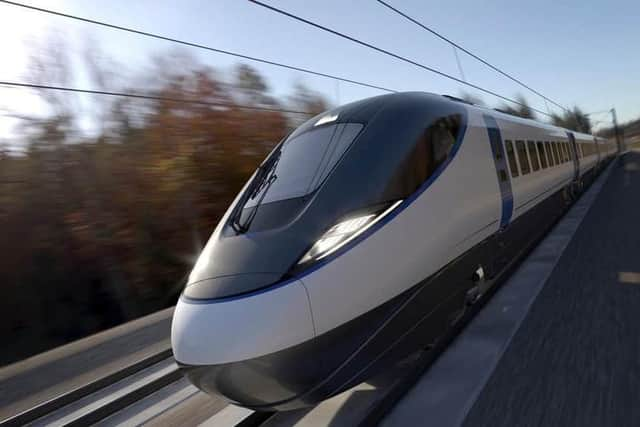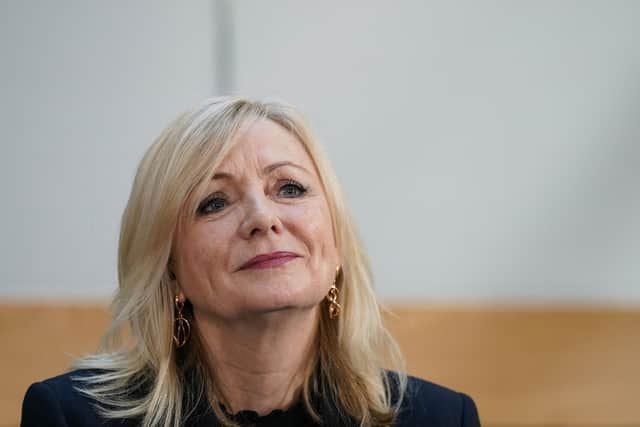HS2: New plans to get high-speed trains to Leeds being explored
West Yorkshire Mayor Tracy Brabin said she is losing patience, after 18 months of “dither and delay”.
Councillor James Lewis, leader of Leeds Council, said he is also pressing Westminster for an update on the study.
Advertisement
Hide AdAdvertisement
Hide AdThe Government scaled back plans for the high-speed line to save money in November 2021, as part of the Integrated Rail Plan (IRP), and said the eastern leg would stop at East Midlands Parkway.


But the IRP also stated a £100m study will be conducted to determine the most effective way to run HS2 trains to Leeds and a solution for long-standing capacity issues at the city’s main train station.
The Yorkshire Post understands the Department for Transport (DfT) is currently considering a plan to run HS2 services from Manchester to Leeds.
The department is also exploring plans to upgrade the existing line between Sheffield and Leeds. If it delivers that project and its plan to upgrade the Midland Main Line by 2030, that would pave the way for HS2 trains to reach Leeds.
Advertisement
Hide AdAdvertisement
Hide AdPlans to redevelop Leeds station and build a new line that runs to a junction at Stourton, where it can connect to the Sheffield line or the East Coast Mainline, are also being considered.


Several Tory Ministers have promised that HS2 services will eventually reach West Yorkshire. But the launch of the study, which is expected to take at least 18 months to complete, has been delayed by the Treasury questioning the £100m cost and last year's Government reshuffles.
The DfT said it has “made funding available” for the study and the terms of reference will be announced “soon”. It comes three months after Rail Minister Huw Merriman said it would begin “in the weeks to come”.
Ms Brabin said it is “frustrating” that it has not been launched yet.
Advertisement
Hide AdAdvertisement
Hide Ad“The churn in Westminster has definitely not helped with all the dither and delay,” she said. “While they sit on their hands, we are suffering in the north.
“I've written to, I don't know how many ministers over the last 18 months, making the case for HS2 and I'll continue to bang on about that, because we need an integrated modern transport network that is fit for the 21st century.”
Councillor Lewis added: “Delivering high-speed rail to Leeds is a once-in-a-generation opportunity to build on our city’s continuing economic growth and recovery, and create much better connections between ourselves and neighbouring cities including Sheffield, Nottingham and Birmingham.”
There are growing concerns about the spiralling cost of the largest infrastructure project in Europe, which is expected to reach £71bn, even if services never reach Leeds.
Advertisement
Hide AdAdvertisement
Hide AdUnder the current plans, Phase 1 of HS2, which will link the West Midlands and London, is expected to cost up to £44.6bn and open between 2029 to 2033.
Mr Merriman recently confirmed services will begin running between Old Oak Common in London and Curzon Street in Birmingham by 2033, however plans for the redesigned HS2 station at Euston have been delayed.
HS2 trains are now not expected to run into Euston until 2041 at the earliest after initially being scheduled for 2026, and the cost is predicted to balloon from £2.6 bn to £4.8bn.
Phase 2a, linking West Midlands to Crewe, is due to be delivered between 2030 and 2034, and cost up to £7bn. While Phase 2b, which will run from Crewe to Manchester, is expected to cost up to £22bn and open between 2035 to 2041.